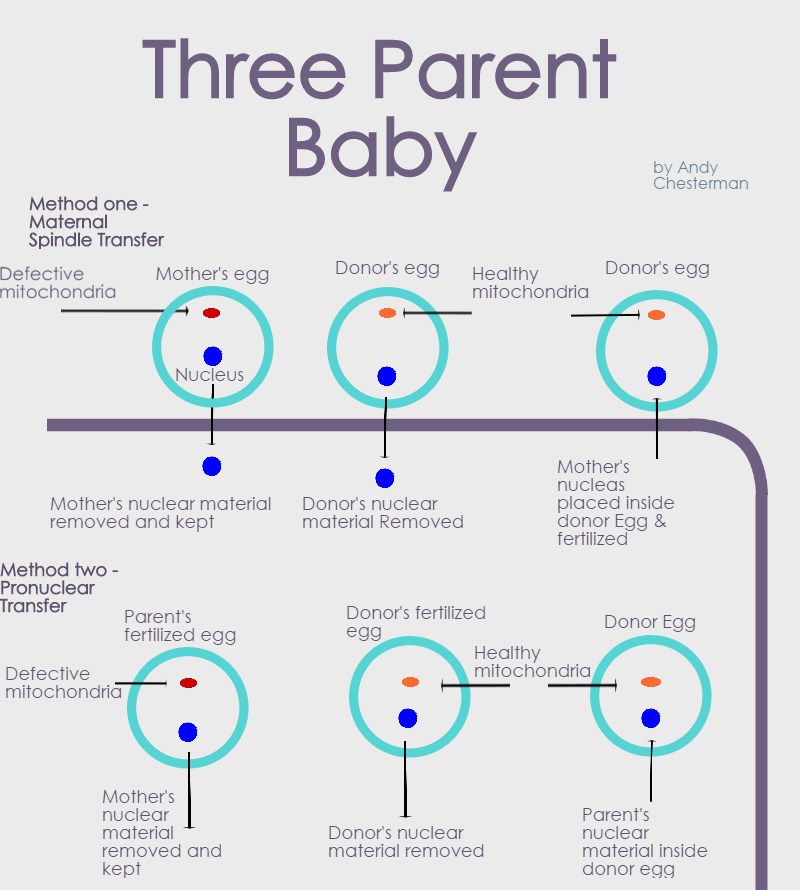Using the DNA of three people to create a baby will be voted on today by MPs in a move that could see a three-parent child born as early as next year.
The vote, which may see the UK become the first country to legalise the procedure, is mired with controversy as senior Church officials oppose the method on ethical grounds.
But a ‘yes’ vote in the House of Commons today could see the first three-parent baby born as early as next year, if the change is also passed in Lords it will become law in October.
The technique could prevent certain genetic diseases being passed from mother to children through faulty mitochondria.
Rev Dr Brendan McCarthy, the Church of England’s national adviser on medical ethics, said: “Our view remains that we believe that the law should not be changed until there has been further scientific study and informed debate into the ethics, safety and efficacy of mitochondrial replacement therapy.”
Mitochondria produce the energy for cells, they have their own genetic information which is separate from the DNA which influences a person’s appearance.
Mitochondrial diseases are only passed on from maternal DNA and can lead to brain damage, muscle wasting, heart failure and blindness, they affect 2,500 women in the UK.
The technique would use a modified version of IVF to combine the DNA of the two parents with the healthy mitochondria of a donor woman.
Less than one percent of faulty DNA in a mother’s egg would be replaced by removing the mitochondria organelle and inserting a healthy, donor one.
The result of the procedure is a 0.1 percent permanent change in DNA which would stop the spread of these genetic problems.
The views of the Church have been attacked by some, given the seven years of detailed research and the stringent standards of ethical scrutiny in the UK.
Dr Jeremy Farrar, director of the Wellcome Trust, said: “It is remarkable that the Church has pronounced that there has been insufficient scientific study without first asking the Newcastle University scientists who lead this research, the families who stand to benefit, or the Wellcome Trust, which funds it, to explain the science to the Archbishops’ Council.”
Picture courtesy of gabi menashe, with thanks





